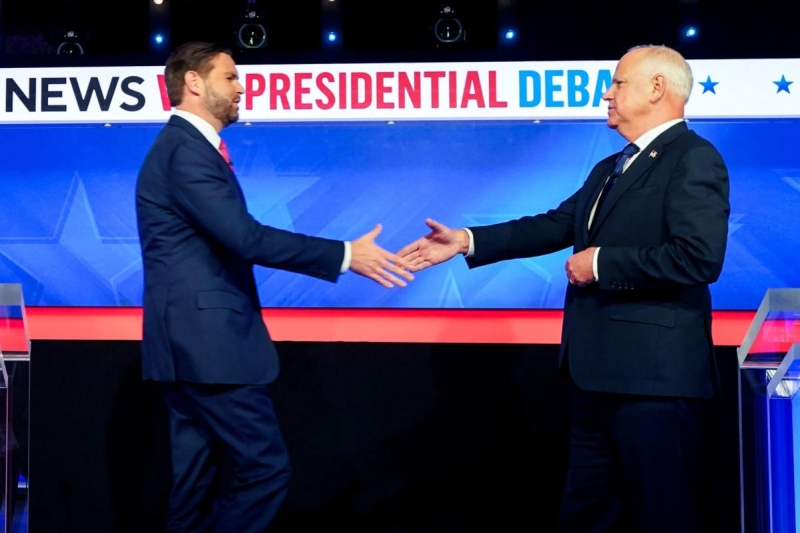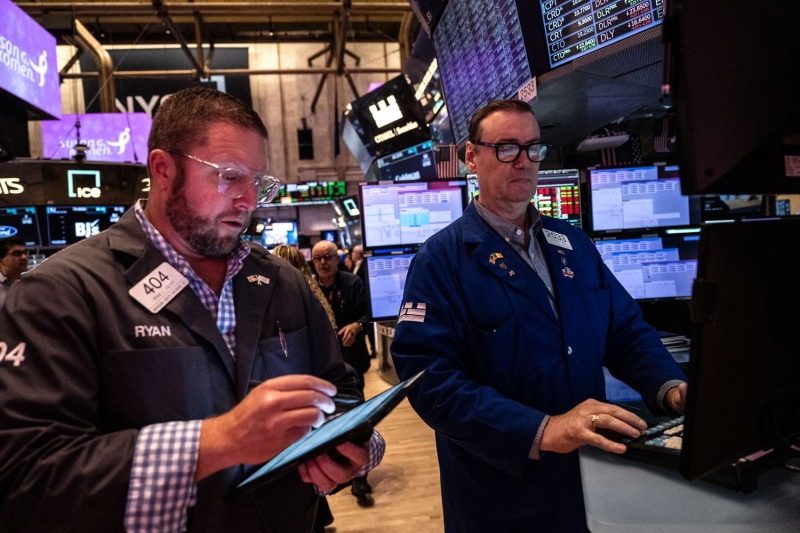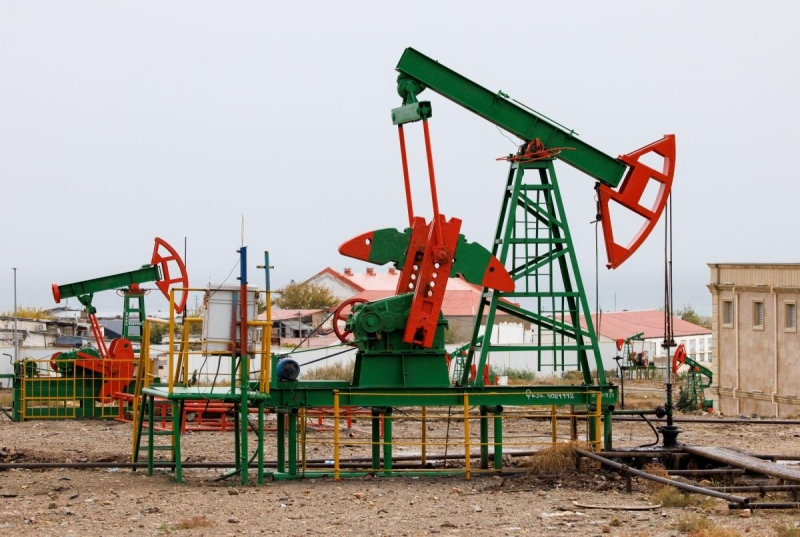
The economy had a starring role in the first, and likely only, vice presidential debate between Minnesota Gov. Tim Walz and Senator JD Vance Tuesday night, with both candidates positioning themselves as a champion of the middle class.
Despite CBS moderators briefly muting Vance and at one point cutting off Walz for going over time, the candidates had a largely cordial night. The two shook hands at the top of the evening and repeatedly agreed with each other throughout the debate on the major issues facing the country. Both talked about coming "from the middle class," and argued that their respective plans would bolster working families and improve the economy.
However, the candidates and their policies are very different.
Vance spent time working in venture capital and has an estimated net worth of $10 million, according to a Washington Post analysis. Walz on the other hand owns no stocks, bonds, or even property. Together with his wife, Gwen, his net worth is $330,000, according to a report by the Wall Street Journal.
Their key financial policy differences were highlighted throughout the night at every turn, even on questions that weren't about the economy outright.
Here's a breakdown of 4 key economic policy areas where Walz and Vance went head-to-head Tuesday:
1. Affordable Housing
Affordable housing came up early on in the debate during the immigration portion, when Vance linked the issues, claiming migrants in the US illegally are driving up the cost of housing. The candidates circled back to the issue during a dedicated section of debate on housing, when Vance doubled down.
"It's why we have massive increases in home prices that have happened right alongside massive increases in illegal alien populations under Kamala Harris' leadership," he said.
But Walz blamed Wall Street for treating housing as "a commodity" and defended his and Democratic candidate vice president Kamala Harris' plan to provide $25,000 in down-payment assistance for first-time homebuyers.
Gov. Walz on unaffordable housing: "We've got a lot of folks that see housing as another commodity."
Harris and Walz have a plan to crack down on price gouging and increase affordable housing. pic.twitter.com/VjKSqjRL3A
— CAP Action (@CAPAction) October 2, 2024
“People with stable housing end up with stable jobs. People with stable housing have their kids being able to get to school. All those things end up saving our money," Walz said defending Harris's plan, which also calls for tax incentives to build more homes.
Moderators also questioned Vance on Trump's plan to seize federal land to build more houses, but he didn't elaborate on specifics.
"We should be opening up building in this country. We have a lot of land that could be used," he said. Vance repeatedly pivoted to blaming President Joe Biden and vice president Harris for the current housing situation.
2. Health Care
Vance and Walz both discussed drug prices and agreed on the need for Washington to cut costs, though Walz was able to flex his strong record on the issue. In 2020, he famously signed a bill into law that would help Minnesotans afford insulin.
When pressed on outlining a plan for improving the Affordable Care Act, JD Vance declined to lay out clear details but called for changes to the health insurance marketplace. Vance and Republican Presidential nominee Donald Trump have argued that healthy Americans are burdened by current health insurance prices and changes to the marketplace would lower their costs.
Walz hit back, saying that Vance's plan would increase costs and cause people to lose coverage. He and Harris have opposed private equity ownership in health care.
3. Climate Change
Climate change was among the first questions from moderators during the vice presidential debate and quickly took an economic turn as the candidates debated their views on EVs, solar and energy-related jobs. With the devastating impact of Hurricane Helene fresh on U.S. minds, both candidates were asked how their respective administrations would reduce the impact of climate change.
Walz hit at Trump, saying: “Donald Trump called it a hoax, and then joked that these things would make more beachfront property to be able to invest in.” He went on to tout his experience as Minnesota governor bringing electric vehicle and solar jobs to the state.
When asked what their administrations would do to try and reduce the impact of climate change, JD Vance says he and Donald Trump "support clean air, clean water," arguing that the answer to climate change is investing in more energy production in the U.S.
Tim Walz said the Biden… pic.twitter.com/yIjnjPA5r5
— CBS News (@CBSNews) October 2, 2024
Vance said, "Trump and I support clean air, clean water," and swiped at Harris for "doing business with the dirtiest parts of the world," referencing manufacturing in China.
Vance argued that his and Trump's plan, which calls for investing in more natural gas, will be friendlier to Americans' pockets and create jobs in the U.S. He also blamed Harris for current oil prices.
4. Tax cuts and tariffs
Walz and Vance each worked to pitch their tax cuts as the better option for the middle class.
Walz opened the section saying, "Kamala Harris and I believe in the middle class because that’s where we came from." Their plan includes childhood tax credits and cuts on taxes for the middle class. Walz blamed Trump's management of COVID for "the collapse of our economy" and said Harris had turned it around. He also linked Trump to oil billionaires and questioned Trump's record on paying taxes.
"If you're listening tonight and you want billionaires to get tax cuts," Trump is your candidate, Walz told voters while looking directly into the camera “How is it fair that you’re paying your taxes every year and Donald Trump hasn’t paid any federal tax in the last 15 years?”
Vance shot back: “If Kamala Harris has such great plans for how to address middle-class problems, then she ought to do them now — not when asking for a promotion."
Vance also defended the Trump legacy on the economy, with moderators pressing him to answer to his own past comments criticizing Trump.
"Donald Trump delivered for the American people, rising wages, rising take home pay, an economy that works for normal Americans, a secure southern border," he said. "When you screw up, when you misspeak, when you get something wrong, and you change your mind, you ought to be honest with the American people.”
He also partially blamed Congress, saying there “were a lot of things on the border, on tariffs” that “could have done so much more if the Republican Congress and the Democrats in Congress had been a little bit better about how they governed the country.”
Reactions to the debate
After the debate, 88% of viewers said they viewed the event as "generally positive."
For bigger picture breakdowns on the economic impact of the 2024 presidential race in the U.S. check out some of our previous reporting:
This story was originally featured on Fortune.com



